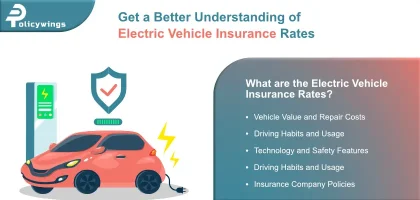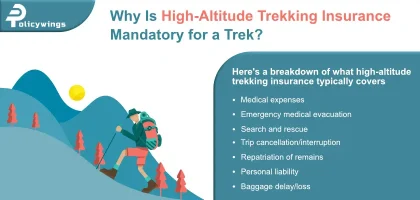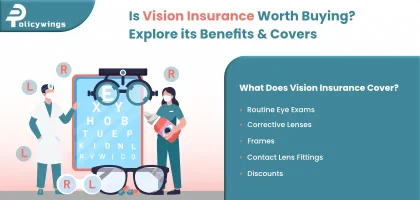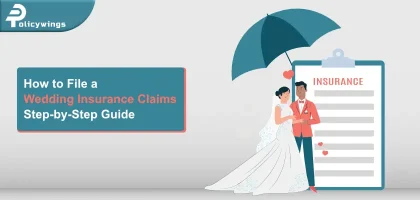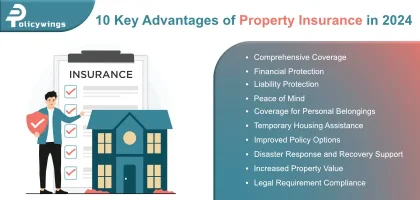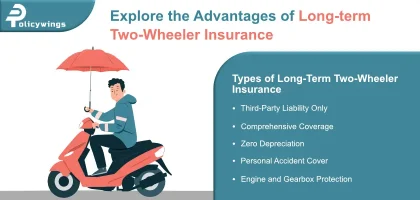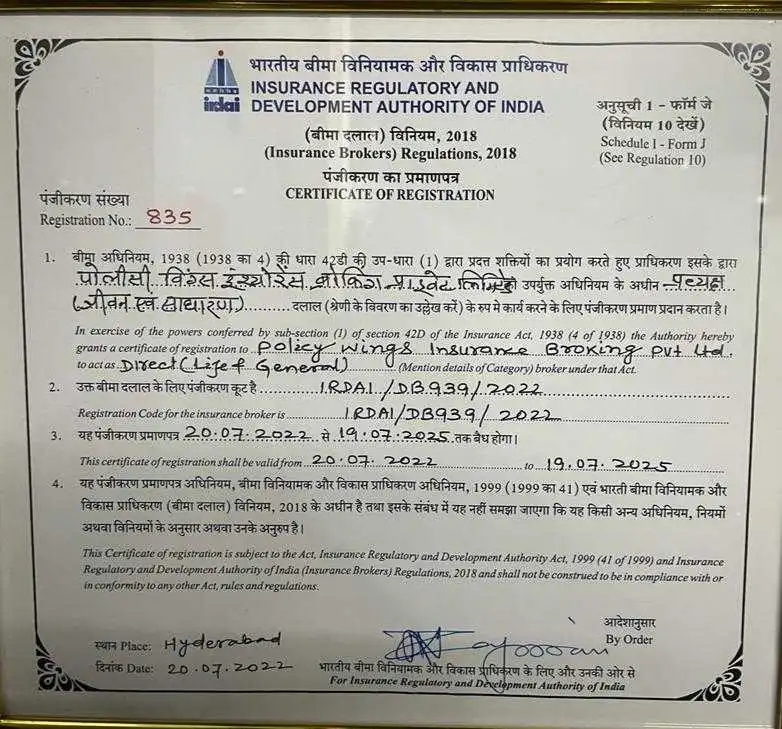Motor Insurance
Motor Insurance
Buy & Renew Vehicle Insurance Policy Online at Policy Wings
Motor insurance is a must for every car owner. Whether you drive a new car or a second hand car or bike, getting motor insurance is your legal obligation. Most individuals consider their bikes or vehicles to be among their most valuable possessions. As a result, it is always preferable to have additional security for your ‘best buddy,’ i.e., your vehicle. This is exactly what ‘motor insurance offers.
This article will offer everything you need to know about motor insurance policies.
What exactly is motor insurance?
Motor insurance can be defined as a mandatory insurance plan that every individual driving on Indian streets must have. Every car, bike, truck, moped etc. needs to be covered under a motor insurance plan of its own. The insurance policies provide a cover against any physical loss or damage suffered by the vehicle from natural causes like flood and fire as well as man-made disasters like riots and theft. The insurance plan also offers coverage against any legal third-party claim arising due to damage caused by the insured vehicle.
What are the types of Motor Insurance Plans?
The following is a list of motor insurance plans available in the market:
1. Car Insurance
Car insurance or auto insurance is a legal contract binding the insurance provider and a car owner where the former settles any third-party claims arising due to the property damage caused by the insured vehicle. The policy also includes any damage sustained by the insured car in the accident. The car owner who is the policyholder agrees to pay a certain amount of premium for that coverage.
2. Two Wheeler Insurance
Similar to an auto insurance policy, two-wheeler or bike insurance insures all two-wheelers against lawful third-party claims and damage sustained by the insured bike. However, the premiums of these plans are generally lower compared to auto insurance.
3. Commercial Vehicle Insurance
Commercial vehicle insurance assists all commercial vehicle owners in reducing losses that may arise as a result of damage to vehicles or claims arising due to the damage caused by the vehicles. It protects a business vehicle against unanticipated damages such as theft, fire, crashes, and third-party claims. Commercial vehicles that are eligible for coverage are ones that are not utilised for personal reasons, such as goods transporting vans, trucks, and so on.
What are the types of Motor Insurance coverage?
The following is a list of motor insurance coverages:
1. Standalone Own-damage Cover
The standalone own-damage coverage includes all the physical damages and losses sustained by the insured vehicle during a collision, natural disaster or man-made calamities. However, it is important to understand that this coverage does not extend to third-party claims.
2. Third-party Liability Cover
Third-party liability cover is mandatory for every vehicle travelling on Indian roads. This coverage includes any third-party claims arising due to the physical damage caused by the insured vehicle. However, this policy does not include damage sustained by the insured vehicle.
3. Comprehensive Cover
As the name suggests, the comprehensive cover includes both the standalone own-damage coverage and third-party liability coverage to provide all-around protection to the insured vehicle. Other than that, the policyholder can opt for add-ons to increase the protection over just the damage sustained by the vehicle and the third-party claims. However, these coverage plans are usually costly.
Other than these traditional coverages, here are some policies that are available in the market:
4. Personal Accident Cover
This plan covers the owner-driver of the insured vehicle in case of an unfortunate road accident. This coverage is also available as an add-on for comprehensive motor insurance plans.
5. Pay As You Drive Cover
This policy covers the insured vehicle for the number of kilometres travelled. As a result, the insurance cost for this coverage is often lower.
Why should I Buy Motor Insurance?
If you are not sure if you need motor insurance, here are the reasons why you should consider it:
● Mandatory
The 1988 Indian Motor Vehicles Act has mandated every vehicle travelling in India to carry at least a third party insurance cover. So, if you are caught driving without valid third-party liability insurance in place, the traffic cops can ask to pay a hefty penalty for that. Therefore, it is necessary to have legit motor insurance in place to save paying penalties whenever you hit the road.
● Financial Safeguard
For most people, their vehicle is one of their most prized possessions. By having valid motor insurance in place, you can have the peace of mind that in case something awful happens to your car or bike, you have insurance against all the third-party claims arising from the accident as well as the damage sustained by your vehicle. Apart from that, if you decide to get a comprehensive coverage plan, you can add riders to your base policy to increase your coverage. In any case, this helps you feel safe and secure whenever you decide to head out somewhere.
● Affordable Premiums
There is a huge misconception that motor insurance plans are expensive. Motor insurance plans are some of the most affordable insurance policies available on the market. However, it is important to keep in mind that the premium rate of an insurance plan really depends on the condition and model of the insured car. For example, a brand-new SUV coverage will cost the policyholder more than a 4-year-old two-wheeler. Moreover, if you opt for long-term policies, you can get attractive discounts on 2-year or even 3-year premium prices.
What are the Motor Insurance Add-Ons?
Motor insurance add-ons or riders can be defined as optional coverage packages which the policyholder can choose to add to their base motor insurance plan in order to increase the scope of coverage in exchange for a slight increase in the premium amount. Today, most insurance companies offer comprehensive and affordable add-on options to their customers to help them receive all-around coverage.
Here is a list of the most popular motor insurance add-ons available in the market:
1. Zero Depreciation Cover
The value of your vehicle starts depreciating the moment it walks out of the showroom. Therefore, when a claim is raised, you will get the amount based on the current valuation of your car or two-wheeler. This zero depreciation cover removes the effect of depreciation on your vehicle and helps you seek higher claim amounts.
2. Consumables Cover
Whenever you take your vehicle for repair or maintenance to any garage, they charge you for the consumable elements like air conditioner’s gas, grease, lubricant clip, engine oil, nuts, bolts, screws etc. These elements are not included in a base motor insurance plan. The consumables cover includes these basic elements so that you won’t have to pay for them.
3. Roadside Assistance Cover
The emergency roadside assistance add-on provides you with all the necessary services if your vehicle breaks down in the middle of the road. The services include on-site repair, towing to a local garage, fuel delivery and others.
4. Engine Protection Cover
The engine is the heart of your vehicle but unfortunately, it is not covered by your regular motor insurance covers. This coverage protects the policyholder against expenditures for the mechanical or electrical failure of the engine caused by an oil leak or water ingression.
5. Return to Invoice Cover
If your vehicle is completely destroyed or stolen, this return to invoice cover helps you receive the total invoice price of your vehicle as a claim.
How to File Motor Insurance Claims?
Here is a step-by-step breakdown of the claim filing procedure for motor insurance:
1. First off, you need to inform your insurance provider about the claim as soon as possible. You can contact them over a call or by mailing them.
2. Next, you need to file a duly-filed claim document to your insurance provider along with all the relevant documents. You can find the claim document on your insurance provider’s online website as well as at their local branches.
3. Once you have filed the claim document and their required documents, the insurance-providing company will go over the claim details. In some cases, they can even send a surveyor to evaluate if the claim is legit. The person will make a report after visiting your vehicle and send it to the insurance company.
4. In case of a cashless claim, the garage will send an estimate of the repair invoice to the surveyor which will be filed to the insurance company by him along with his report. In case of a reimbursement claim, you have to attach the estimated invoice amount with the required documents and send it to the insurance company.
5. Once the claim is approved, you can get your vehicle repaired by the garage. However, in the case of a cashless claim, the repair needs to be done in a network garage only.
6. Once the repair is complete, the insurance company will settle the garage directly if you have opted for a cashless claim. In the case of a reimbursement claim, the amount that you have paid will be sent to your bank account.
Motor Insurance Exclusions
While each and every motor insurance provider has its own set of exclusions, here are some of the most common exclusions of motor insurance plans:
● Driving while driving
● Negligent accidents
● Unauthorised driving
● Claims arising due to breach of law
● Add-on covers which are excluded
● Consequential damages which follow an accident
Note: It is important to understand that this is a generic list of common exclusions. Please refer to your policy documents for a more comprehensive list.
Conclusion
With the rising prices, most auto owners are overlooking the fact that getting a motor insurance policy is their first priority. If you fail to get one, you might land up in some very undesirable situations. The above-mentioned points will help lift your memory if you’ve forgotten the importance of motor insurance. Now that you know its advantages, we hope that you would get a better understanding of its benefits and hence be inclined to get one. Connect with the provider of your choice, compare different offers and make sure that your investment is profitable.
Frequently Asked Questions
Yes. The Motor Vehicle Act of India mandates third-party liability motor insurance for every vehicle that is driven on Indian roads.
In order to purchase a motor insurance plan, you need to visit the online website of your preferred insurance provider and follow the application procedure. You can try a car insurance calculator to get an estimate of the premium of your motor insurance. It will help you the comparison of similar insurance products.
The main difference between car insurance and bike insurance plans is that the former covers four-wheelers while the latter is exclusively issued for two-wheeler vehicles.

